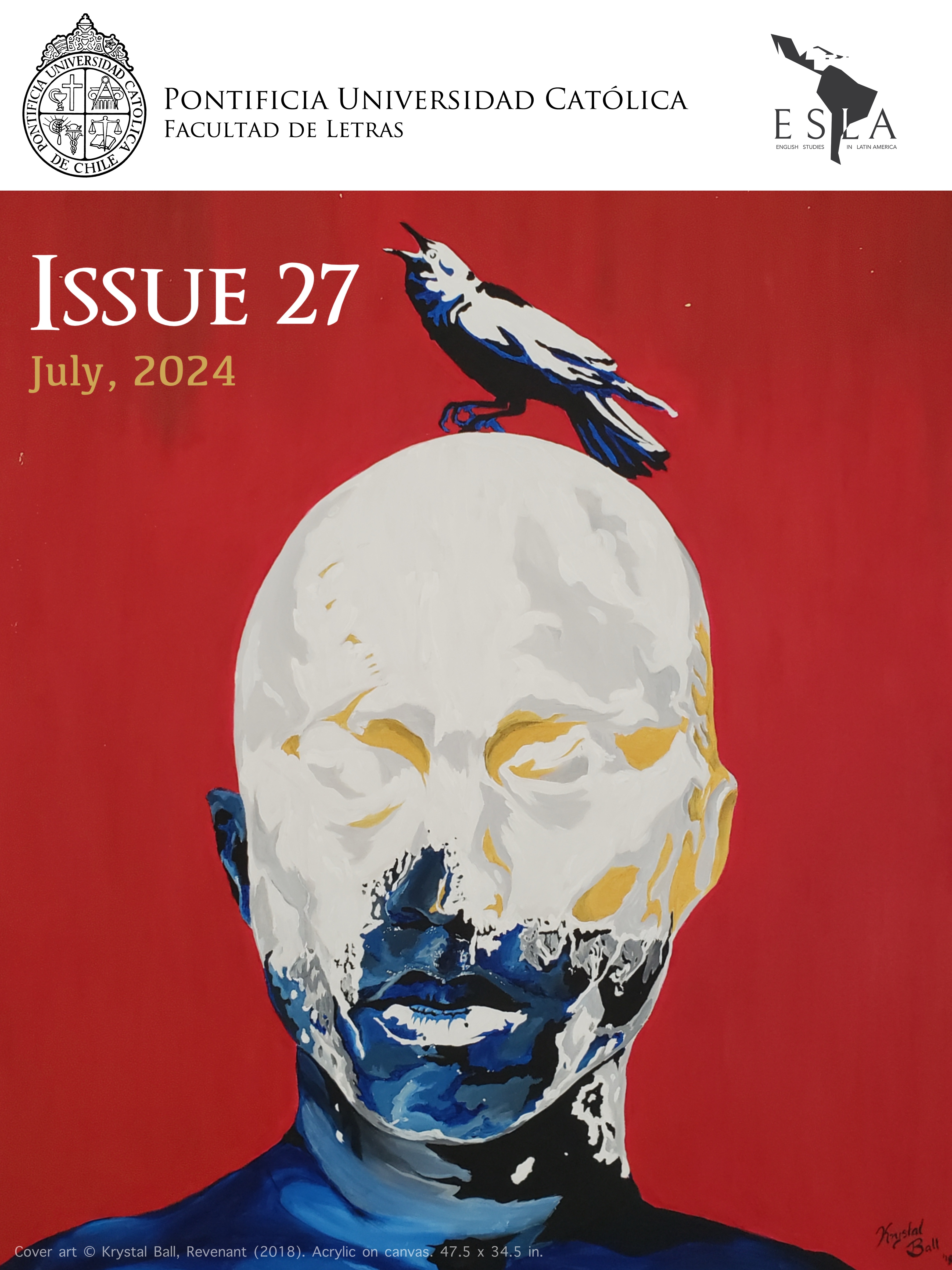Notes on Voice and Tempo in Anglophone Caribbean Literatures
DOI:
https://doi.org/10.7764/ESLA.83272Abstract
This article outlines a historic panorama of the dynamic relationship between written and oral forms of expression in the Anglophone Caribbean, focusing on key literary works of poetry, the novel, and theater, as well as musical genres like calypso and reggae. The aim is to identify trends, and the relationships between them, that expand beyond territorial and temporal limits, in order to better understand how the scribal and oral spheres have interacted under the pressures of colonialism and its residual effects. The article begins with a contextualization of the vernacular’s place in literary works in the Anglophone Caribbean during the colonial period and discusses several concepts that have been key in debates on language as a form of cultural resistance. The second section focuses on the growing anticolonial sentiment that began to sweep through the region in the 1930s and the literary, intellectual, and musical developments that sought to articulate these political inclinations. The third and final section examines reggae aesthetics as a driving force of cultural expression since the 1970s, considering the influence of Rastafarianism and reggae’s impact on various forms of literary production.
Downloads
Downloads
Published
How to Cite
Issue
Section
License
Copyright (c) 2024 English Studies in Latin America: A Journal of Cultural and Literary Criticism

This work is licensed under a Creative Commons Attribution-NonCommercial-NoDerivatives 4.0 International License.


